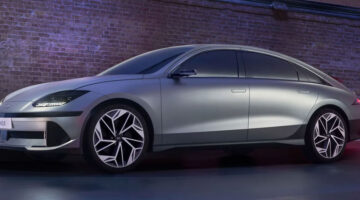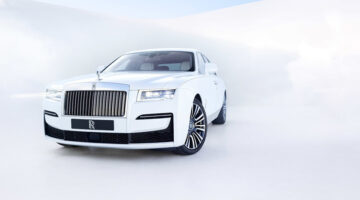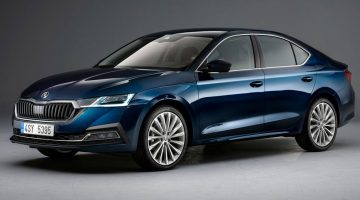Mazda’s new 3 to combine striking looks and new tech to rival Golf and Focus
Mazda has revealed its all-new Mazda 3, making a striking style statement in what is traditionally quite a conservative class. And it’s not just the design that’ll get tongues wagging, because under the bonnet is the brand’s hi-tech, high efficiency Skyactiv engines that are an internal combustion riposte to the gathering ranks of electric vehicles. We received a good look at the new 3 via the Kai concept Mazda brought to last year’s Tokyo motor show, but only now is it clear how faithfully the new 3 has followed the concept’s lead.
The hatch features a striking new profile, combining a long bonnet and low slim glass house with a dramatically upswept windowline. The nose is lower, and longer than before, incorporating slim LED headlights into the wider grille and simplified, pared lower bumper. The saloon takes a sleeker approach, borrowing cues from the larger Mazda 6, although the overall effect is subtler than the hatch.
Under the bonnet will sit Mazda’s next generation petrol Skyactiv-X engine, which combines both compression and spark ignition in the one engine to get the best of both diesel and petrol in terms of performance, refinement and efficiency. As we went into further detail in a prototype model driven earlier in the year, the engine will not switch between the two forms, instead it will overlap between the two forms of ignition depending on load and revs.
The Skyactiv-X engine will be combined with Mazda’s ‘M-hybrid’ mild hybrid system. Standard 1.5-litre and 2-litre Skyactiv-G engines will also be available, as well as a 1.8-litre Skyactiv-D diesel, the latter is also paired with the mild-hybrid system.
Underpinning the new Mazda 3 is an updated version of Mazda’s Skyactiv vehicle architecture, which has been designed principally to improve the suppression of noise, vibration and harshness, a criticism levelled at the current Mazda 3. The front suspension is a simple Macpherson strut set up, but at the rear the sophisticated multi-link system has been ditched in favour of a rather more basic torsion-beam arrangement.
In Japan the Mazda 3 will be available with all-wheel drive, which normally requires fully independent suspension to make room for the rear differential and driveshafts. It could be that Mazda has managed to combine this set-up with a torsion beam, but more likely it will follow the lead of Ford and VW Group, which offer both torsion beam and multi-link rear axle options on its Focus and MQB underpinned models (VW Golf, SEAT Leon, Skoda Octavia) respectively.
The interior has also been through a major overhaul, incorporating the next generation of Mazda’s infotainment system integrated into an interior architecture that is completely new. The more driver-focused design is much sleeker and more pared back than previous, much like the sleek exterior.
Although a reboot of the hot Mazda 3 MPS is still off the cards, the next Mazda 3 will showcase the Japanese marque’s approach to the potential of the internal combustion engine before electrification inevitably takes the lead in the future. It should also be infused with the entertaining and engaging driving dynamics that make even its cooking models fairly fun to punt down the road. For now though, the Golf and Focus might have to look over their shoulders, as the Mazda 3 looks like it might finally present a real challenge to the status quo.





